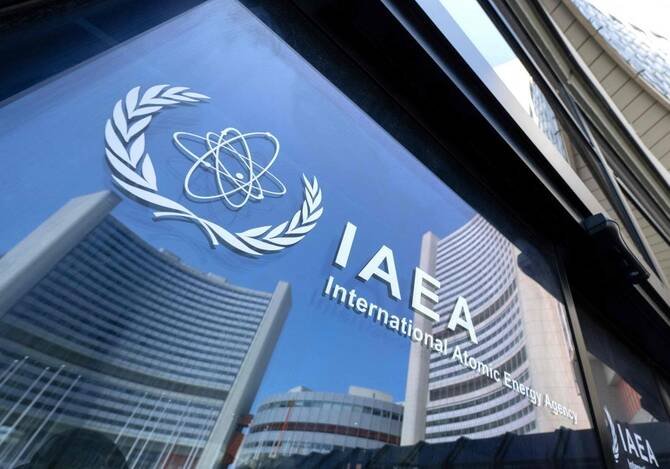The Uttarakhand High Court has declared the Ganga and Yamuna rivers as “living entities”.
The landmark judgment that came on Monday is the first of its kind in India- and second in the world- and this is what it essentially means.
The rivers, two of the most sacred in India, will now have the same legal rights as a human being.
Three government appointed officials have been ordered to act as legal parents to the rivers, considered minors legally, and to defend and represent them.
What the court said
In its judgment, a copy of which has been published by Live Law, the court said that “the Rivers Ganga and Yamuna, all their tributaries, streams, every natural water flowing with flow continuously or intermittently of these rivers, are declared as juristic/legal persons/living entities having the status of a legal person with all corresponding rights, duties and liabilities of a living person in order to preserve and conserve river Ganga and Yamuna. The Director NAMAMI Gange, the Chief Secretary of the State of Uttarakhand and the Advocate General of the State of Uttarakhand are hereby declared persons in loco parentis as the human face to protect, conserve and preserve Rivers Ganga and Yamuna and their tributaries.”
Devotees take a dip in the Ganga in Allahabad; PTI
Explaining the concept of a juristic person, the HC said, “A juristic person, like any other natural person is in law also conferred with rights and obligations and is dealt with in accordance with law. In other words, the entity acts like a natural person but only through a designated person, as their Lordships have held in the judgments cited hereinabove, that for a bigger thrust of socio-political-scientific development, evolution of a fictional personality to be a juristic person becomes inevitable. This may be any entity, living inanimate, objects or things. It may be a religious institution or any such useful unit which may impel the Courts to recognise it”.
Why was it required
The court said that the “extraordinary situation” has arrived since the rivers are losing their existence. And an extraordinary situation calls for extraordinary measures.
“The rivers have provided both physical and spiritual sustenance to all of us from time immemorial. Rivers Ganga and Yamuna have spiritual and physical sustenance. They support and assist both the life and natural resources and health and well-being of the entire community. Rivers Ganga and Yamuna are breathing, living and sustaining the communities from mountains to sea,” it said.
Remains of idols which had been immersed in the Yamuna during the Durga Puja festival in New Delhi last year; PTI Photo
Just last week, New Zealand became the first country in the world to grant one of its rivers- the Whanganui- the same legal rights as a human being.
It came as a big win for the indigenous Māori tribe that had been fighting to get recognition for the river for over a century now.
Gerrard Albert, lead negotiator for the Whanganui iwi [tribe], told The Guardian, “The reason we have taken this approach is because we consider the river an ancestor and always have.”
“We have fought to find an approximation in law so that all others can understand that from our perspective treating the river as a living entity is the correct way to approach it, as in indivisible whole, instead of the traditional model for the last 100 years of treating it from a perspective of ownership and management.” he added.
Significance
Stating that the rivers are central to the existence of half of Indian population and their health and well being, the court directed the central government to constitute a Ganga Management Board.
This move, the court hopes, will be able to save two of the most polluted rivers in the world.
Environmental scientist Dr BD Tripathi, who was earlier an expert member of National Ganga River Basin Authority, called the HC order a “highly significant” one.
“The Ganga flows through Uttarakhand, UP, Bihar, Jharkhand and West Bengal. But all the states have different rules and regulations when it came to maintaining the river. This will help in bring about a uniform set of regulations,” he said.
Tripathi, who is also the Coordinator, Centre for Environmental Science & Technology, Banaras Hindu University, added that since the order makes the rivers legal entities, it will now make it possible to initiate legal proceedings against those harming them. “This is a unique order and will help in the conservation of the rivers.”
The Yamuna in New Delhi; PTI
Chennai-based environmental activist Nityanand Jayaraman raised a pertinent question.
“The judgment puts the government agency that is overseeing the Namami Ganga project in the position of the parents of the rivers. Ganga and Yamuna have the status of minors. That’s also because the rivers cannot speak for themselves and hence require benevolent parents to speak for them, to look out for their interests. But what are the agencies that will be regulating the parents?,” he asked.
Stating that he is yet to get a clear picture of the entire order, he added that the decisions made by the so-called legal guardian could be very subjective. “If you are talking about the legal rights of the river as a person then the river could be an extremely abused child. The ramifications (of the judgment) are still not clear.”
Enanble Notification: NoTNM Marquee: No








